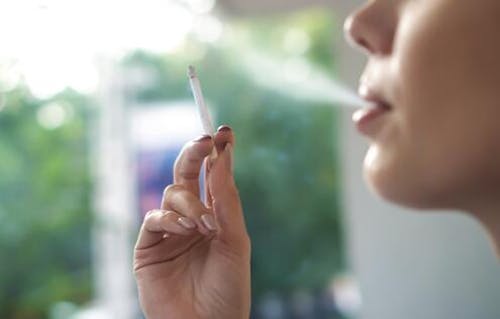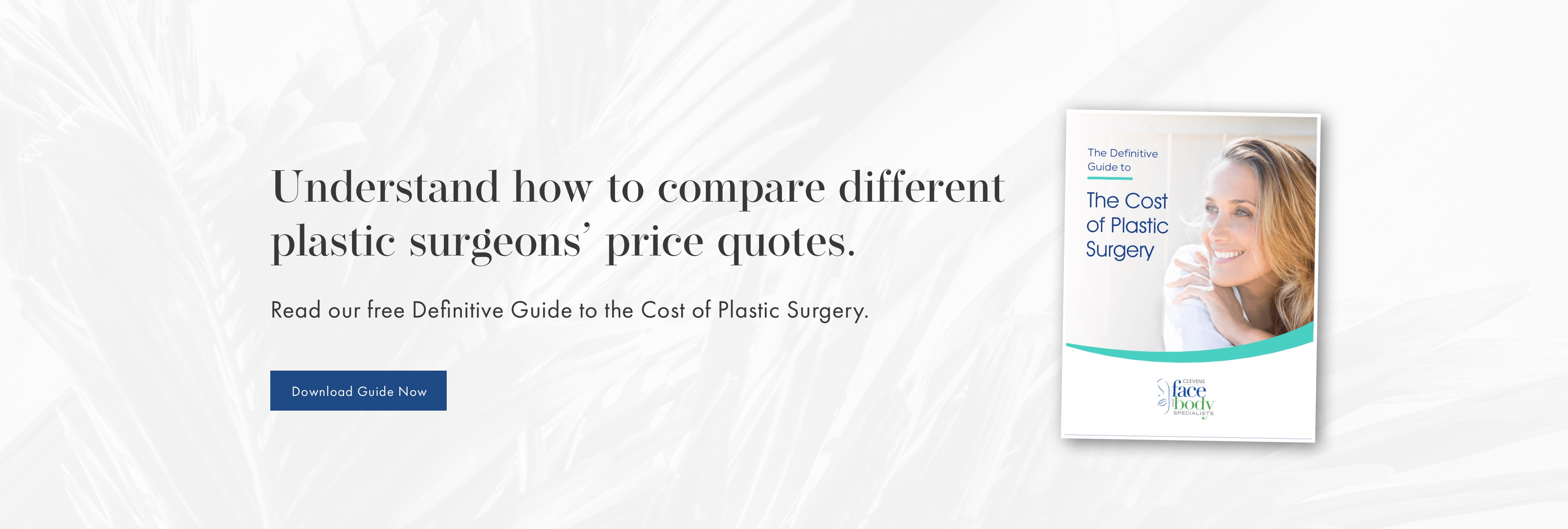On 29
Mar
2021

If you’re planning to have plastic surgery, chances are you’ve already heard you may need to quit smoking (at least temporarily) to ensure your safety, minimize any potential complications, and achieve your ideal results. We’ll never judge you: Many of our patients are smokers and still have great surgical outcomes and results they love.
Transparency and awareness are the keys to performing comfortable and successful cosmetic procedures on patients who smoke cigarettes or use other nicotine products. Here’s an overview on how smoking and nicotine use can impact the outcome of your plastic surgery results, and why it’s important to be honest with your surgeon about this habit before moving forward.
How Does Smoking Before and After Plastic Surgery Impact Recovery?
It’s no secret that smoking is harmful to your health, so it’s not exactly surprising that smoking before and after plastic surgery can be a concern—but why?
To understand the implications, you need to be aware of the important role our blood vessels play in supplying the skin with oxygen after all surgery, including cosmetic procedures. Our blood vessels supply oxygen to the skin and tissues that are incised, lifted, pulled, stretched, or removed during plastic surgery. Alternatively, limited oxygen can cause tissues to die. Nicotine use (in all forms) shrinks our blood vessels, ultimately inhibiting blood flow and oxygen to skin, other tissues, and organs.
In rarer cases, nicotine use can result in complications following surgery, such as:
- Loss of skin
- Infections
- Fat necrosis that causes hard lumps
- Dangerous blood clots
- Loss of breast implants
- Permanent blood vessel damage
- Life-threatening conditions like stroke, heart attack, and pneumonia
That’s not all; nicotine use not only impacts patients during the actual time of the procedure, but also delays wound healing and increases discomfort afterwards. This can significantly impact and impede the recovery process after plastic surgery, causing long-lasting bruises and raised, red, unsightly scars. (No thank you!)
With all of that being said, we can take steps to reduce risks if you’re honest with your surgeon and care team about smoking.
Do I Really Need To Quit Smoking To Have Plastic Surgery?
On the other hand, smoking cessation can make all the difference in terms of your plastic surgery recovery and results. A recent study by the World Health Organization (WHO) revealed that every tobacco-free week after four weeks improves surgical outcomes by 19 percent due to improved blood flow. As a non-smoker, you’re also less likely to experience complications with your oxygen levels during general anesthesia.
Quitting, pausing, or even slowing down nicotine use is also beneficial when you’re recovering from plastic surgery. Although smoking can slow the healing process and lead to a lengthy recovery, the opposite is true if you quit smoking in advance of your procedure. Adequate delivery of blood flow, oxygen, and nutrients to body tissues will aid in achieving a smooth recovery and an optimal aesthetic outcome with final results.
Speaking of aesthetic results, that's the ultimate goal when having a cosmetic procedure, right? The more committed you are to making healthy choices, listening to your surgeon’s recommendations, and following postoperative instructions, the better your final results will be. Although smoking may cause slower wound healing and more noticeable scarring, quitting or cutting back can have the opposite effect and help minimize the appearance of post-surgical incisions.
Why Should I Be Honest With My Surgeon About Smoking?
Being honest and straightforward with your plastic surgeon about your smoking habit in advance of your procedure is essential, whether you plan to quit or not. It’s important both for achieving your desired results and making sure your surgery is comfortable.
Don’t be afraid to be transparent—remember, we’re not here to judge or nag you. As medical professionals, it’s our job to take every precaution in order to complete cosmetic procedures safely, comfortably, and effectively. Your candidness regarding your nicotine use will help us assess the risks for you personally and ensure you’re fully informed about the impact smoking can have on your plastic surgery outcome.
During your consultation, one of our board-certified plastic surgeons and their care team will thoroughly explain the impact nicotine use has on your body, health, healing, and results when used immediately before and/or after surgery. Most plastic surgery groups, ours included, recommend patients quit smoking a minimum of 1-2 weeks prior to surgery and 1-2 weeks following surgery, though the recommendation is different for every patient and may be longer for particularly heavy or long-term smokers. The longer you remain nicotine-free, the more beneficial the break (or quitting completely) will be.
Keep in mind cigarettes aren’t the only culprit. We recommend that our patients stop using all nicotine products and not only cigarettes. For example, in addition to cigarettes, nicotine gum, nicotine patches, chewing tobacco, pipes, cigars, and even electronic cigarettes (vape pens) can all impact your surgical outcome.
According to recent research amid the rising popularity of e-cigarettes, nicotine replacement products designed to aid in smoking cessation carry similar risks to smoking and should also be avoided. Most importantly, though, the same research reveals that patients who stopped smoking before plastic surgery had equivalent risk for postoperative complications as patients who had never smoked.
How Do I Get Started?
Nervous about the idea of quitting and unsure of how to get started? That’s totally understandable! After all, nicotine is very addictive, which is why quitting is such a challenge for so many people.
We’re happy to connect you with local resources to help you quit smoking and using other nicotine products. An alternative to nicotine gums and patches may be to try a nicotine-free medication like Chantix to help you stop smoking before and following your cosmetic procedure.
Other tips that may help you quit smoking or using nicotine products include:
- Practicing yoga and meditation
- Chewing nicotine-free gum
- Adopting new, healthy habits
- Finding healthy distractions
- Seeing a therapist or hypnotist
- Avoiding triggers (e.g., drinking alcohol)
- Downloading a mobile app to track progress
Nicotine use is risky business, but it shouldn’t prevent you from seeking out a cosmetic procedure that interests you. By learning the risk factors and being honest with your plastic surgeon about your smoking habit, you can take an active role in your own healing and recovery to ensure the best outcome possible. And hey, you might even cut out an unhealthy habit in the process. Talk about a win-win!


